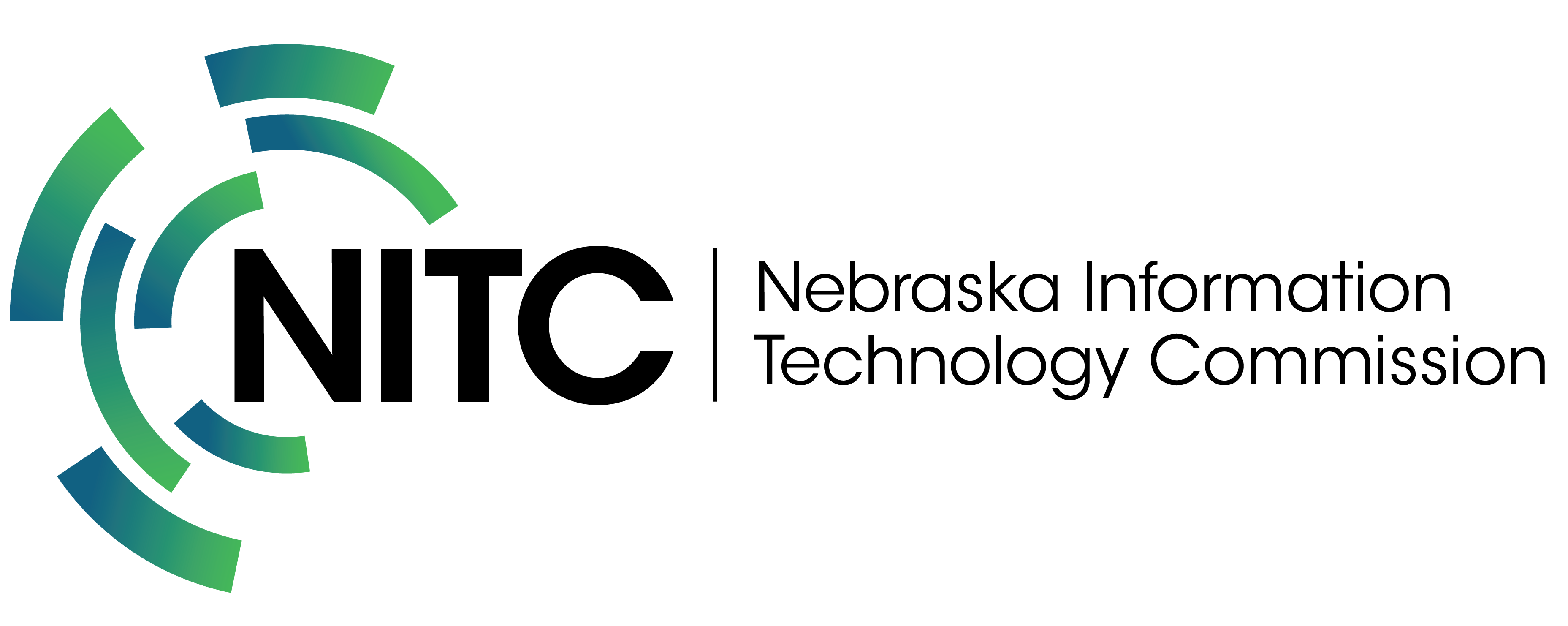Meeting Procedure
Approved by the NITC on June 29, 1999 | Updated November 15, 2011
1. Chair(s)
1.1
The elected Co-Chairs will conduct the meetings of the Council, oversee the establishment, operation and dissolution of committees, propose meeting agendas, and maintain the general operations of the Council. The Council will follow an informal protocol as defined by Robert's Rules of Order.
1.2
The Co-Chairs of the Council will serve until June 30, 2001; withsubsequent two-year elected terms expiring on June 30 of each year.
1.3
One Co-Chair shall be representative of K-12 education and one Co-Chair shall be representative of postsecondary education.
2. Quorum and Action Items
An official quorum consists of 8 (50%) of the 16 official members or their alternates. No official voting business may be conducted without an official quorum. Issues shall be decided by a majority vote of the voting members present.
3. Designated Alternates and Non-voting Alternates
3.1
Each member of the Council shall designate one (1) official alternate. This official voting alternate shall be registered with the Office of the Chief Information Officer and NITC and, in the absence of the official member, have all the privileges as the official member on items of discussion and voting.
3.2
If the official member and the member's official alternate are unable to attend a Council meeting either in person or electronically, then the sub-sector affected may send a non-voting alternate to gather or share information.
4. Meeting Frequency
The Council shall meet not fewer than four times per year (quarterly). As a general rule, the Council shall attempt to meet bimonthly (every other month), except in conditions of extreme circumstances.
5. Subcommittees
The Council may, as it deems necessary, form task forces, teams, work groups, and special, ad hoc, and standing subcommittees to carry out its mission and responsibilities. Each time a new subcommittee is formed under the Council, the following seven sections must be decided and assigned within 30 days of formation.
5.1 Authority
The authority of any subcommittee of the Council is obtained and assigned through an official motion of the Commission and/or Council.
5.2 Goals
The Co-Chairs of the Council assign the goals of any subcommittee of the Council.
5.3 Charge
The Council delivers the charge to the subcommittee, which includes a monthly progress report back to the Council at its regular meeting.
5.4 Membership
The membership of each subcommittee of the Council shall be determined by appointment, election, or volunteerism, whichever means is most suitable to the Council. The subcommittees may include members from outside the Council as resource persons, as determined by the Council. The number of members on any subcommittee shall be fewer than a quorum of the members of the Council (8).
5.5 Leadership
Each subcommittee of the Council shall have a single chair to provide leadership. The Co-Chairs of the Council may appoint this person, if the Co-Chairs desire, or the majority of the subcommittee may elect this person.
5.6 Duration
The Council shall assign each subcommittee a specific duration to complete its charge. At the conclusion of the duration and delivery of its charge, the subcommittee shall be dissolved. If the subcommittee requires a longer duration than has been assigned, the chair of the subcommittee shall request an extension or renewed duration.
5.7 Process
The subcommittees charged by the Council may conduct their own meetings and forums away from the Council's regular monthly meetings. The chair of the subcommittee must inform the Office of the CIO-NITC of the date, time, and location of additional meetings.
5.8 Open Meetings
"Sections 84-1408 to 84-1414 of the Open Meetings Law shall not apply to subcommittees of such bodies unless a quorum of the public body attends a subcommittee meeting or unless such subcommittees are holding hearings, making policy, or taking formal action on behalf of their parent body..."
6. Expense Reimbursement
81-1182.01 "Any department, agency, Commission, council, committee, or board of the state may pay for the reasonable and necessary expenses for the recruitment, training, utilization, and recognition of volunteers providing services to the state and certain providers of services as established by the Director of Administrative Services."
6.1 NAS Policy CONC-005
"Volunteers shall mean those persons providing services to the State who are not being compensated for their time."
6.2 Request for Reimbursement
Council members needing reimbursement must submit a signed request to the Office of the CIO-NITC using the official state accounting form
7. Open Meeting Laws and Public Notice
It is the policy of the State of Nebraska that the formation of public policy is public business and may not be conducted in secret. Every meeting of a public body shall be open to the public in order that citizens may exercise their democratic privilege of attending and speaking at meetings of public bodies.
7.1 Advance Notice
The Council shall give reasonable advance publicized notice of the time, place, and agenda of each meeting through the use of the Council website. The agenda will also be available for public inspection during normal business hours at the Office of the CIO-NITC, 501 S. 14th, 4th floor, Lincoln, Nebraska. The Council will attempt to adhere to the sequence of the published agenda, but reserves the right to adjust the order of items if necessary and may elect to take action on any of the items listed.
7.2 Videoconferencing
Videoconferencing Meetings of the Council may be held by means of videoconferencing if: reasonable advance publicized notice is given; reasonable arrangements are made to accommodate the public's right to attend, hear, and speak; at least one copy of all documents being considered is available at each site; one member of the council is present at each site of the videoconference; and no more than one-half of the Council's meetings in a calendar year are held by videoconference.
7.3 Rights of the Public
It is not a violation for the Council to make and enforce reasonable rules and regulations regarding the conduct of persons attending, speaking, reporting, videotaping, photographing or recording its meetings. The Council may not forbid public participation at all meetings but may not be required to allow citizens to speak at each meeting. The Council shall not require members of the public to identify themselves as a condition for admission to the meeting but may do so as a condition for addressing the Council.
7.4 Minutes and Voting
The Council shall keep minutes of all meetings showing the time, place, members present and absent and the substance of all matters discussed. Any action taken on any question or motion duly moved and seconded shall be by roll call vote of the Council in open session, and the record shall state how each member voted or if the member was absent or not voting. The roll call shall be called on a rotational basis. Minutes shall be written and available for inspection within 10 working days or prior to the next convened meeting, whichever occurs earlier.

